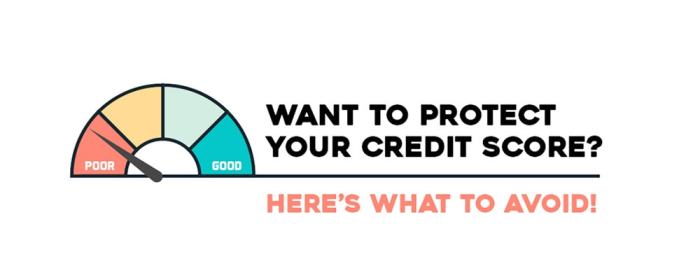Best ways to protect your credit score: Keep it secure and sound. Ready to dive into the world of credit score protection? Strap in as we explore the key strategies to safeguard your financial standing and keep those numbers in check.
Understanding the significance of credit score protection is just the beginning. Let’s uncover the secrets to maintaining a healthy credit score and ensuring your financial well-being.
Understand the Importance of Credit Score Protection
Protecting your credit score is crucial for maintaining financial stability and security. Your credit score is a key factor that lenders use to determine your creditworthiness when applying for loans, credit cards, or mortgages.
Potential Consequences of a Low Credit Score
- A low credit score can result in higher interest rates on loans, making borrowing more expensive in the long run.
- It may limit your ability to qualify for certain financial products or services, hindering your financial opportunities.
- Having a low credit score can also impact your ability to rent an apartment, get a cell phone contract, or even secure a job.
Benefits of a Good Credit Score
- A good credit score can help you qualify for lower interest rates on loans, saving you money over time.
- It can increase your chances of approval for credit cards with better rewards and benefits.
- Having a good credit score can also make it easier to secure a mortgage or car loan with favorable terms.
Monitor Your Credit Report Regularly
Regularly checking your credit report is crucial in protecting your credit score and identity. It is recommended to check your credit report at least once a year, but ideally, you should monitor it more frequently, such as quarterly or even monthly.
Red Flags to Watch Out For
- Unauthorized accounts or inquiries: If you notice any accounts or inquiries on your credit report that you did not authorize, it could be a sign of identity theft.
- Inaccurate personal information: Incorrect personal details, such as your name, address, or Social Security number, could indicate fraudulent activity.
- Unexpected drops in credit score: Sudden drops in your credit score without any apparent reason could signal potential fraud or errors on your report.
Obtaining and Reviewing Your Credit Report
Obtaining a copy of your credit report is easy and free. You are entitled to one free report from each of the three major credit bureaus (Equifax, Experian, TransUnion) every 12 months.
- Request your credit report from AnnualCreditReport.com, the only authorized website for free credit reports.
- Review your report carefully for any discrepancies, errors, or signs of fraudulent activity.
- If you find any inaccuracies, report them to the credit bureau immediately to have them investigated and corrected.
Safeguard Personal Information: Best Ways To Protect Your Credit Score

Protecting your personal information is crucial in maintaining a healthy credit score and preventing identity theft. By being mindful of how you share your sensitive data, you can reduce the risk of fraud and unauthorized access to your financial accounts.
Tips for Protecting Personal Information
- Avoid sharing sensitive information, such as your Social Security number or financial details, on public platforms or unsecured websites.
- Be cautious when providing personal data over the phone or through email, especially if you did not initiate the communication.
- Regularly review your bank and credit card statements for any unauthorized transactions or suspicious activity.
- Shred documents containing sensitive information before disposing of them to prevent dumpster diving.
Risks of Sharing Personal Data Online, Best ways to protect your credit score
- Sharing personal data online can make you vulnerable to identity theft, where fraudsters may use your information to open accounts or make purchases in your name.
- Criminals can also use social engineering tactics to trick you into revealing more personal information, putting your financial security at risk.
Importance of Secure Passwords
- Using strong, unique passwords for your online accounts can help protect your personal information from cyber threats.
- Consider using a password manager to generate and store complex passwords for each of your accounts securely.
- Enable two-factor authentication whenever possible to add an extra layer of security to your accounts.
Utilize Credit Monitoring Services
When it comes to protecting your credit score, utilizing credit monitoring services can be a game-changer. These services can help you stay on top of any changes to your credit report and alert you to potential fraud or suspicious activities.
Compare Different Credit Monitoring Services
Before choosing a credit monitoring service, it’s important to compare different options available in the market. Look for services that offer comprehensive monitoring of your credit report from all three major credit bureaus – Equifax, Experian, and TransUnion. Additionally, consider the cost, ease of use, and customer reviews to make an informed decision.
Features to Look for in a Reliable Credit Monitoring Service
- Real-time monitoring of your credit report for any changes or updates
- Identity theft protection and fraud alerts
- Credit score tracking and analysis
- Dark web monitoring for any compromised personal information
- 24/7 customer support for assistance and guidance
How Credit Monitoring Services Help Detect Fraud
Credit monitoring services can help you detect fraud and unusual activity early by sending you alerts for any suspicious changes to your credit report. Whether it’s a new account opened in your name or a sudden drop in your credit score, these services can notify you promptly so you can take action to protect your credit.
